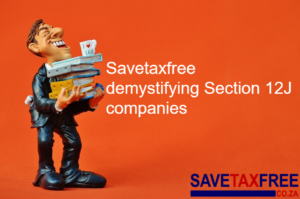New JSE-listed AMI Big50 ex-SA ETF offers Pan-African investment opportunities
Related Articles
JSE | 20 April 2017
New ETF offers investments across multiple African exchanges
Today’s listing on the Johannesburg Stock Exchange (JSE) of the Big50 Ex-SA ETF gives investors access to a new index that offers a diversified investment of 50 companies across the African continent, excluding South Africa, through 15 African stock exchanges. The ETF is offered by investment firm Cloud Atlas Investing, a Johannesburg based Collective Investment Scheme.
Prejelin Naggan, Head of Primary Markets, Johannesburg Stock Exchange and Maurice Madiba, CEO and Founding Director of Cloud Atlas Investing.
“The JSE is committed to playing a role in the expansion and deepening of Africa’s investment opportunities. This new ETF offers an easy, safe way to invest in African markets and supports the continent’s growth journey,” says Donna Nemer, Director of Capital Markets at the JSE.
ETFs are investments that track the performance of a group or ‘basket’ of shares, bonds or commodities. The Big50 Ex-SA ETF tracks an index that has been designed by Cloud Atlas and which invests across African exchanges in countries such as Egypt, Mauritius, Kenya, Morocco, Tanzania, Nigeria, Tunisia, Botswana, Namibia, Uganda, Ghana and Zimbabwe, as well as the BRVM Exchange in West Africa.
Maurice Madiba, CEO and Founding Director of Cloud Atlas Investing, says, “We want to improve liquidity and help to develop African markets for investors to feel the full robustness of these markets, and as such, have chosen to invest in stocks that are listed on African exchanges. These could include stocks in multinationals that are listed on African exchanges, as well as local African companies.”
ETFs offer tax and cost benefits, and are a suitable investment vehicle for those who are new to the world of stock markets but are also used by institutional investors.
Madiba says that while the AMI Big50 ex-SA ETF offers individual investors an opportunity to invest in diverse African shares, it also provides an opportunity to institutional investors, who are able to invest up to five per cent of a fund’s capital in African investments according to Regulation 28 of the Pension Funds Act.
He clarifies, “We have received a dispensation from the South African Reserve Bank to offer this ETF to institutional investors according to Regulation 28. We have already opened up the ETF to the retail market, and certainly have plans to bring the institutional investor on board. We believe this ETF is a good product to have for the long-term investor because of its growth prospects, and as such will be of interest to both the individual and the institutional investor. It is important to us that we try to facilitate ways in which Africans can participate in Africa’s growth.”
Nemer notes that ETFs are well-regulated by both the JSE and the Financial Services Board (FSB) and can be acquired, like any other listed share, through a stockbroker or online trading account, or via an investment platform that offers a monthly debit order facility. She adds, “Because the Big50 ex-SA ETF is suitable for individual investors as well as institutional investors, it offers a wider opportunity to participate in Africa’s growth. In addition, because it does not invest primarily in South African investments, it offers local investors Rand-hedging opportunities.”
The ETF market has seen steady growth globally as well as in South Africa and this ETF listing brings the total number of ETFs listed on the JSE to 53, with a total ETF market capitalisation of almost R73 billion.






